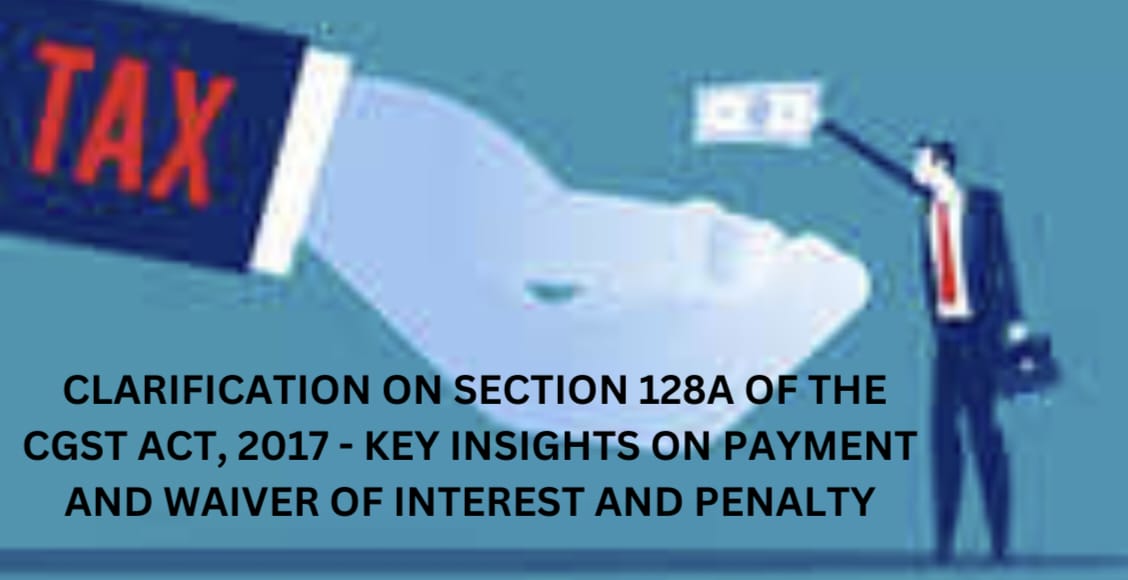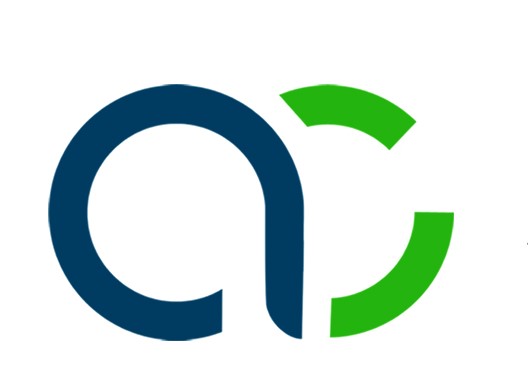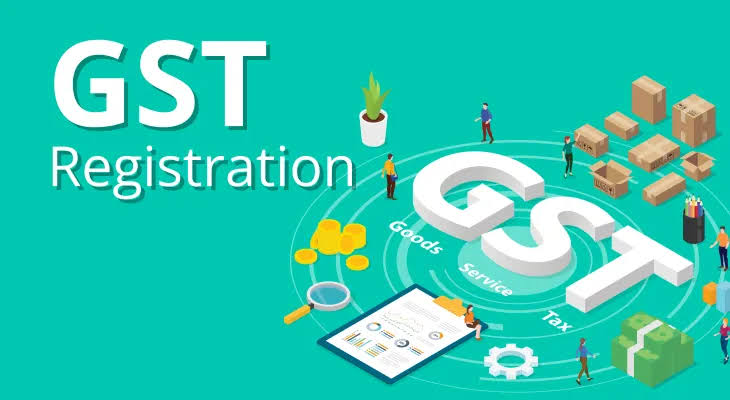Clarification on Section 128A of the CGST Act, 2017- Key Insights on Payment and Waiver of Interest and Penalty
The Central Goods and Services Tax (CGST) Act, 2017,
through Section 128A, outlines the waiver process for interest or penalties on
tax demands. This section specifically addresses the conditions under which
taxpayers can file for waivers, the process for payment, and how disputes are
handled. In this article, we will examine essential aspects of Section 128A,
focusing on payment methods, application processing, and appeal mechanisms.
Here's a breakdown of the key elements:
Payment of Tax and Deduction for Retrospective ITC Adjustments
1.
Payment of Tax
Adjudication
Status:
·
For notices or statements pending
adjudication, taxpayers must make payments via FORM GST DRC-03.
·
For adjudicated orders, payments should
be made through the Electronic Liability
Register (ELR) Part II, as prescribed in Circular No. 224/18/2024-GST. If the payment was initially made via
GST DRC-03, it can be adjusted by
filing FORM GST DRC-03A.
Deadline:
All
payments must be completed by March 31, 2025. In special cases where orders
need redetermination under Section 73, payments should be made within six
months of the redetermination.
2.
Deduction for Retrospective ITC Adjustments :
Due
to amendments in Section 16, amounts initially denied due to non-compliance
with Section 16(4) may now be deductible if compliant with newly added
sub-sections (5) and (6). However, this deduction applies only to instances
where ITC was denied solely on Section 16(4) grounds.
Waiver Application Process and Appeal Process
3.
Waiver Application Process :
The process involves filing either FORM GST SPL-01 or FORM GST SPL-02 for waiver applications, depending on the nature of
the demand. The proper officer, who handles the waiver applications, will issue
a notice if the application is found ineligible. Applicants can respond to the
notice through FORM GST SPL-04.
If
the waiver is approved, an order will be issued in FORM GST SPL-05. Conversely, if denied, the officer will issue FORM GST SPL-07. Orders not processed
within the stipulated period are automatically approved under FORM GST SPL-05.
4.
Appeal Process :
Taxpayers cannot appeal
against orders concluding the proceedings under Section 128A (FORM GST SPL-05) but may appeal against rejection
orders (FORM GST SPL-07) within the
timeframe specified in Section 107. In cases where an appeal is filed and the
appellate authority overturns the rejection, the waiver application may be
reinstated.
Conclusion
Section
128A of the CGST Act, 2017, provides essential guidelines on tax payment,
deduction eligibility, waiver applications, and appeal mechanisms for
taxpayers. By adhering to these protocols, taxpayers can potentially avoid
interest and penalty payments, streamlining compliance efforts. This provision
also strengthens administrative clarity, ensuring that taxpayers have clear,
actionable steps for addressing tax demands and navigating waiver applications.
These steps for tax payment, waiver applications,
and appeal processes, helping taxpayers effectively navigate Section 128A of
the CGST Act.






